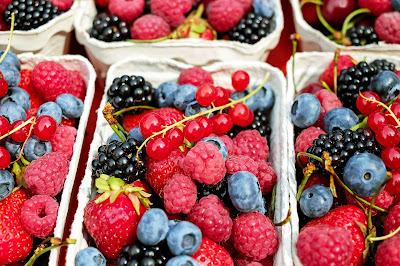We’re all under stress, whether at home or at work or due to illness. So
who wouldn’t like to find something that could boost resistance to the adverse
effects of stress?
A wide variety of herbal compounds are touted for their ability to help the body respond to or recover from physical or psychological stress, as well as for bolstering immunity and general well-being. One group of them is called adaptogens, a term coined in the early 1960s by Israel Brekhman, a Russian scientist.
A wide variety of herbal compounds are touted for their ability to help the body respond to or recover from physical or psychological stress, as well as for bolstering immunity and general well-being. One group of them is called adaptogens, a term coined in the early 1960s by Israel Brekhman, a Russian scientist.
The concept of adaptogens was based in part on a
theory of stress called the “general adaptation syndrome,” proposed by an
Austrian endocrinologist, Hans Selye. This basically holds that stress causes
the body to go through three stages—preparing for fight or flight, adapting to
the stress, and then exhaustion if the stress is long-lasting. Adaptogens are
supposed to be a kind of general restorative tonic that counters the effects of
stress, normalizes bodily functions, and helps the body heal itself.
Though not accepted by mainstream Western
medicine, the concept that adaptogenic herbs can boost strength and vitality is
integral to traditional Eastern medicine. As such, these herbs are often
promoted as virtual cure-alls—“magic” or “miracle” remedies for everything from
boosting mental attention and physical endurance to preventing a host of
diseases. (Dr. Oz, in his typical pie-in-the-sky manner, titled
one of them a “miracle pill for anti-aging.”) Even one supplement industry group, while praising adaptogens as
“powerhouses,” warns that the marketing claims for adaptogens often are
exaggerated, misrepresent the research, or are “pure fantasy.”
As with most herbs, there are few well-designed
human studies on adaptogens. Moreover, the studies, many of them done in China
or India, often use mixtures of herbs, so it’s impossible to know what is
having an effect, if there is one.
One key problem is the variability of the herbs.
Different species or varieties have different compounds and biological
properties, and different parts of the plant (roots, leaves, stems) also
contain varying chemicals. How the herbs are processed affects their biological
activity as well. Moreover, it’s hard to study the many vague claims. How, for
instance, do you measure increased “well-being” or “vitality”? Plus, it’s hard
to know what you’re really getting in the bottles, since there is little meaningful regulation of dietary supplements.
That said, here are seven of the most popular
adaptogens. Their potential adverse effects are grouped together at the end.




















